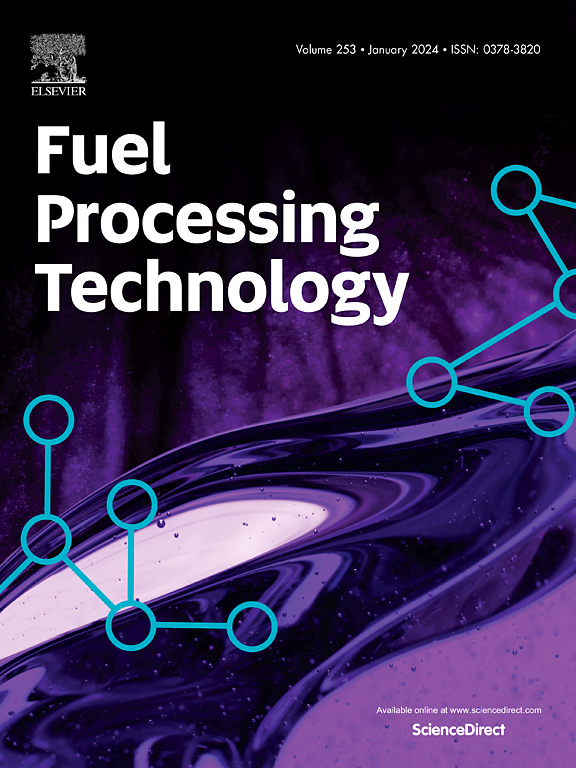Ecofriendly and cost-effective biodiesel production from water containing feedstocks through electrolysis- a review
IF 7.7
2区 工程技术
Q1 CHEMISTRY, APPLIED
引用次数: 0
Abstract
Biodiesel has the potential to significantly contribute to the elimination of the current global energy and climate change challenges. However, its production and commercialization have been hindered by the diverse nature of feedstocks, and production techniques. This comparative review evaluates the production of biodiesel by electrolysis method with other methods such as (trans)esterification, supercritical transesterification, emulsion or micro-emulsion, and thermal cracking or pyrolysis, microwave-assited transesterification, and photocatalysis in terms of their environmental impact and commercial feasibility. Also, this study focuses on the availability of different biodiesel feedstocks and summarizes their characteristics affect biodiesel properties. It also outlines the criteria for selecting feedstocks for sustainable and low-cost biodiesel production. Waste cooking oil based third-generation feedstocks have been shown to be superior in comparison. Among all biodiesel production processes, electrolysis is the most suitable because it is an eco-friendly method with properties comparable to diesel. Recent research provides an update on the current challenges and opportunities for biodiesel commercialization, taking into account techno-economic and environmental considerations. The review concludes with future perspectives and suggestions regarding the selection criteria of feedstocks and production techniques to make biodiesel production cost-effective, efficient, and environmentally friendly.
电解含原料水生产生物柴油的研究进展
生物柴油有潜力为消除当前全球能源和气候变化挑战做出重大贡献。然而,由于原料和生产技术的多样性,其生产和商业化受到阻碍。本文对电解法生产生物柴油与反式酯化、超临界酯交换、乳液或微乳液、热裂解或热解、微波辅助酯交换、光催化等方法的环境影响和商业可行性进行了比较评价。此外,本研究还重点研究了不同生物柴油原料的可获得性,并总结了它们的特性对生物柴油性能的影响。它还概述了为可持续和低成本生物柴油生产选择原料的标准。以废食用油为基础的第三代原料已被证明是比较优越的。在所有生物柴油生产工艺中,电解是最合适的,因为它是一种环保的方法,具有与柴油相当的性能。考虑到技术经济和环境因素,最近的研究提供了生物柴油商业化当前挑战和机遇的最新情况。最后,就原料选择标准和生产技术提出了未来的展望和建议,以使生物柴油的生产具有成本效益、效率和环境友好性。
本文章由计算机程序翻译,如有差异,请以英文原文为准。
求助全文
约1分钟内获得全文
求助全文
来源期刊

Fuel Processing Technology
工程技术-工程:化工
CiteScore
13.20
自引率
9.30%
发文量
398
审稿时长
26 days
期刊介绍:
Fuel Processing Technology (FPT) deals with the scientific and technological aspects of converting fossil and renewable resources to clean fuels, value-added chemicals, fuel-related advanced carbon materials and by-products. In addition to the traditional non-nuclear fossil fuels, biomass and wastes, papers on the integration of renewables such as solar and wind energy and energy storage into the fuel processing processes, as well as papers on the production and conversion of non-carbon-containing fuels such as hydrogen and ammonia, are also welcome. While chemical conversion is emphasized, papers on advanced physical conversion processes are also considered for publication in FPT. Papers on the fundamental aspects of fuel structure and properties will also be considered.
 求助内容:
求助内容: 应助结果提醒方式:
应助结果提醒方式:


